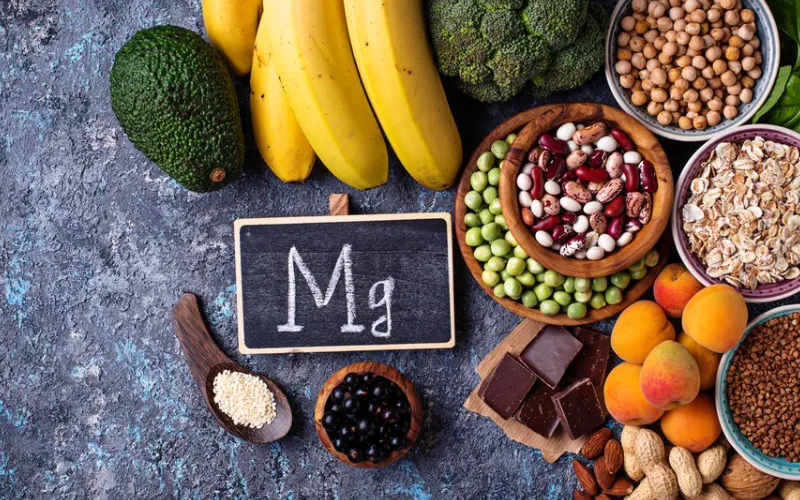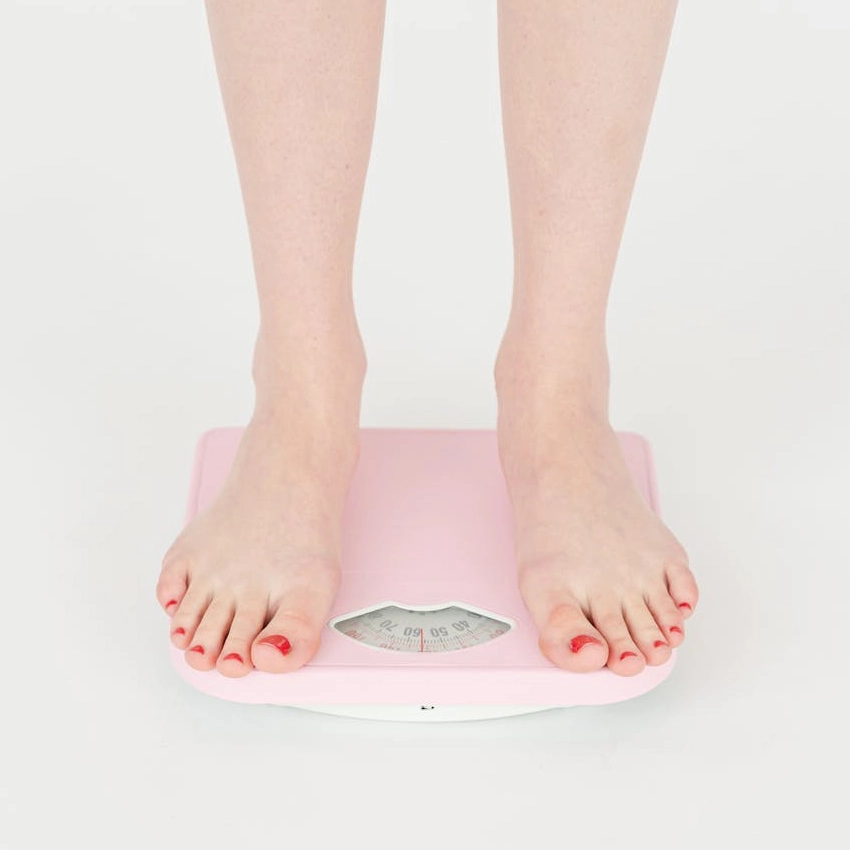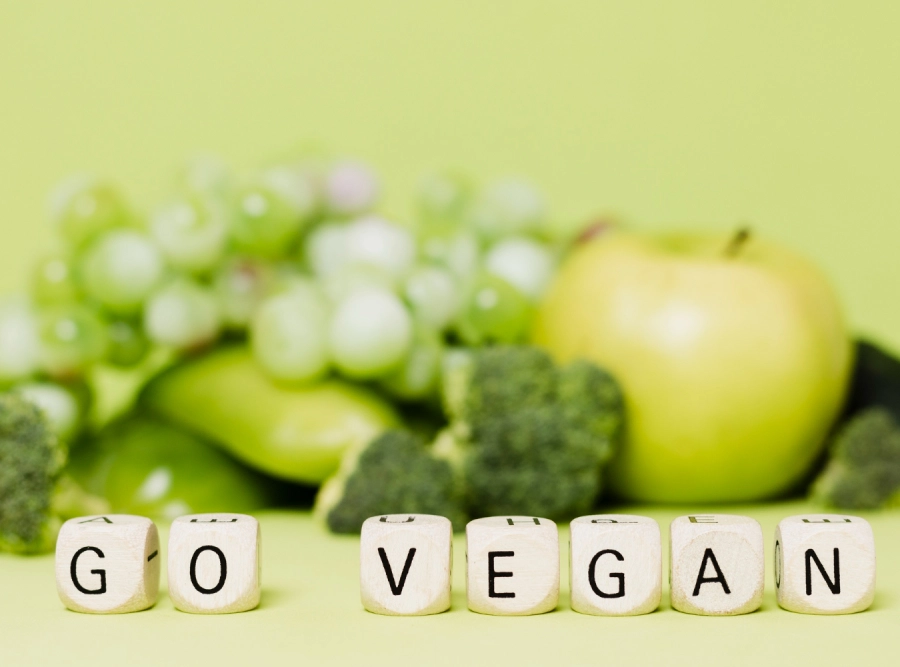Tired of sleepless nights despite trying every trick in the book?
Consider this – a vegan diet might be the key to better sleep. Studies suggest that those on a plant-based diet sleep about 36 minutes more than omnivores.
Your body can be seen as a sophisticated sleep mechanism, where each meal choice affects your rest. Veganism could boost your sleep through natural hormone regulation and gut health.
Here are the 10 ways going vegan could significantly improve how you slumber.
1. Less Digestive Stress

You’ve felt it. That heavy meal that keeps you up at night.
But now, with a vegan diet, your meals are lighter.
Vegan food is easier to digest. You won’t toss and turn from indigestion. No more bloating or heartburn. Your stomach feels calm.
This means you can relax before bed. Your body doesn’t have to work so hard to digest, and you fall asleep faster and sleep better.
Vegan meals are simpler for your gut, which can make all the difference. Enjoy your nights, not dread them. Going vegan gives you the peaceful sleep you need.
2. Reduced Inflammation

Eating meat can lead to inflammation in your body. This isn’t good for sleep.
Inflammation can make you feel uncomfortable, even when you’re trying to rest. But, when you switch to a vegan diet, you choose foods that fight inflammation.
Fruits, vegetables, nuts, and seeds are full of antioxidants. These antioxidants work like little soldiers, protecting your cells from damage.
Less inflammation means less pain or stiffness in your joints or muscles at night. You wake up less often because your body isn’t fighting off discomfort. Plus, less inflammation can lead to lower levels of cytokines, compounds that can keep you awake by making you feel alert or anxious.
When you reduce these through your vegan diet, your body can slip into a more restful state.
Imagine going to bed without that nagging ache or restlessness, allowing your body and mind to truly unwind. By choosing plant-based foods, you’re not just eating for health but setting the stage for a night of rejuvenating, uninterrupted sleep.
3. Magnesium Boost

Magnesium is key for sleep regulation. It helps your body produce melatonin, the sleep hormone.
A vegan diet is rich in magnesium. Foods like spinach, kale, avocados, nuts, and seeds are packed with it. Eating these foods means your body gets more magnesium than a meat-based diet.
This can lead to better sleep quality.
Magnesium also helps relax muscles, reducing nighttime restlessness. When your muscles are calm, you fall asleep faster and stay asleep longer. Plus, magnesium aids in managing stress, which can interfere with sleep.
By boosting your magnesium intake with vegan foods, you’re not just feeding your body but setting up for a peaceful night. More magnesium means better sleep hormone regulation, less muscle tension, and lower stress levels.
This nutrient can differ between tossing and turning or drifting into deep, restorative sleep.
4. Weight Management

Vegan diets often lead to weight loss. This can improve your sleep.
Excess weight is linked to sleep disorders like sleep apnea. With sleep apnea, your breathing stops and starts repeatedly during sleep. This disrupts your sleep cycle, making rest less effective.
Vegan foods, being high in fiber and lower in calories, can help manage or reduce weight. Losing weight can decrease the severity of sleep apnea or even eliminate it.
When you’re not struggling to breathe at night, you sleep better.
A vegan diet also promotes satiety, reducing the likelihood of late-night snacking, which can interfere with sleep.
Maintaining a healthier weight reduces the likelihood of experiencing issues like acid reflux or joint pain that can wake you up. Better sleep comes from not just what you eat but how your body reacts to your diet.
Veganism supports weight management, leading to fewer sleep disturbances and a more restful night.
5. Lower Acid Reflux

Acid reflux can make bedtime miserable. It’s that burning sensation in your throat or chest after eating.
A vegan diet can help reduce this.
Meat and dairy products often trigger acid reflux. Plant-based foods are generally less acidic.
They’re also easier to digest. Vegan meals can prevent the stomach from producing too much acid.
Vegetables, fruits, and whole grains don’t sit in your stomach like heavy meals do. This means less chance of acid splashing back up into your esophagus while you’re trying to sleep.
By eliminating common triggers like fatty meats or dairy, you’re less likely to wake up with uncomfortable burning.
A vegan diet focuses on foods that soothe rather than irritate the digestive tract. This leads to fewer nighttime awakenings due to acid reflux, ensuring your stomach stays calm and you can enjoy uninterrupted sleep.
6. More Melatonin

Melatonin is the hormone that tells your body it’s time to sleep. Certain vegan foods naturally contain melatonin or help your body produce more.
Nuts like almonds and walnuts, seeds, and fruits like cherries and bananas are great examples. These foods can boost your melatonin levels without supplements.
Tart cherries, in particular, are known for their high melatonin content. Eating these can help sync your body’s internal clock, making it easier to fall asleep when you want to.
Moreover, foods rich in tryptophan, an amino acid, aid in melatonin production. Tryptophan is found in soy products, oats, and seeds. When you consume these, your body converts tryptophan into serotonin, which then turns into melatonin.
By including these foods in your diet, you’re setting up your body for a natural increase in melatonin. This can lead to falling asleep more quickly and enjoying a deeper sleep without the side effects sometimes associated with melatonin supplements.
7. Stable Blood Sugar

Stable blood sugar levels are crucial for uninterrupted sleep. Spikes or drops in blood sugar can wake you up or prevent you from falling asleep.
Vegan foods help maintain this balance. They’re typically high in fiber, which slows down the absorption of sugar into your bloodstream. This means no sudden energy highs followed by crashes.
Foods like lentils, chickpeas, and whole grains gradually release glucose. This steady release supports a consistent energy supply throughout the night, reducing the likelihood of waking up hungry or restless.
Moreover, plant-based diets are low in processed sugars and fats, which can cause fluctuations.
Eating these foods reduces the likelihood of experiencing middle-of-the-night hunger pangs or restless energy that can disrupt sleep. This balance helps keep the body calm and conducive to falling and staying asleep.
When blood sugar remains stable, sleep can be more restful, and you may wake up refreshed rather than groggy.
8. Better Stress Management

Stress can be a significant barrier to good sleep. Vegan diets are linked to lower stress levels. Plant-based foods contain nutrients that support your nervous system and mood.
Magnesium, found in leafy greens, nuts, and seeds, plays a role in calming the body and mind. Similarly, omega-3 fatty acids from chia seeds, flaxseeds, and walnuts help reduce inflammation and improve brain health, contributing to stress reduction.
Vegan diets also encourage the consumption of foods rich in antioxidants, like berries and dark chocolate, which combat oxidative stress. This can lead to a more relaxed state at bedtime.
Moreover, preparing and enjoying plant-based meals can be meditative, offering a break from daily stressors. When you manage stress better through diet, your sleep quality improves. You’re less likely to lie awake worrying and more likely to drift off into a restful sleep.
Lower stress means your mind can quiet down, letting your body rest and recover overnight.
9. Improved Gut Health

Switching to a vegan diet can do wonders for your gut health.
You’ll find that plant-based foods are packed with fiber, which is like fuel for your gut bacteria. These good bacteria help digest food, absorb nutrients, and even produce serotonin, a neurotransmitter that contributes to feelings of well-being and happiness.
When your gut is happy, you produce more serotonin, which can lead to better mood regulation and, yes, better sleep.
Plus, a vegan diet eliminates processed foods and additives that can disrupt your gut’s balance. Instead, you’re filling up on whole foods that promote a diverse microbiome. This diversity is key to a robust digestive system.
With a healthier gut, you’re less likely to deal with digestive issues that might wake you up at night. Your body can focus on rest rather than recovery.
Improved gut health means you’re not just sleeping longer; you’re sleeping better, waking up with more energy and less discomfort.
10. Reduced Exposure to Chemicals

Animal products can contain various chemicals that might impact your sleep.
Hormones and antibiotics are often used in livestock farming, which can end up in the meat or dairy you consume. These substances can disrupt your natural hormone balance, including those that regulate sleep, like melatonin.
You’re reducing your intake of artificial chemicals by choosing a vegan diet. Plant-based foods also don’t carry the same risk of hormone residues that can interfere with your sleep cycle.
Additionally, vegan diets avoid processed foods, which can contain preservatives and other additives that might affect sleep quality.
Instead, you’re eating foods that are closer to their natural state, free from the chemical additives found in many animal products. This cleaner diet supports your body’s natural rhythms, promoting a more natural production of sleep hormones.
Less exposure to these external chemicals means your body can better regulate when it’s time to wind down, potentially leading to a more restful and rejuvenating sleep experience.
Why Sleep Matters?

Sleep is fundamental for your health. It’s when your body heals, your mind processes the day’s events, and your immune system strengthens.
Poor sleep can lead to mood swings, decreased cognitive function, and a higher risk of chronic diseases like heart disease and diabetes. Quality sleep improves memory, concentration, and productivity. It also helps regulate emotions, reducing stress and anxiety.
Without enough sleep, your body doesn’t get the chance to repair itself, leading to physical and mental fatigue.
Good sleep also plays a role in weight management, influencing hunger hormones that can drive you to eat more. In essence, sleep is not just rest; it’s a critical component of health maintenance, mental clarity, and emotional well-being.
Prioritizing sleep can be one of the best things you do for your overall health.
How to Transition for Better Sleep
Switching to a vegan diet for better sleep doesn’t have to be overwhelming. Here’s how to do it smoothly:
- Start Small: Add one or two vegan meals to your weekly diet. Gradually increase this number over time.
- Focus on Nutrient-Rich Foods: Incorporate plenty of vegetables, fruits, legumes, nuts, and seeds. These foods are packed with sleep-supporting nutrients like magnesium and melatonin.
- Avoid Processed Vegan Foods: Steer clear of vegan junk food. High sugar or salt content can still disrupt your sleep.
- Meal Timing: Eat your last meal a few hours before bedtime. A light snack like nuts or cherries is fine if you’re hungry later.
- Hydration Strategy: Drink water throughout the day but reduce intake as bedtime nears to avoid midnight bathroom visits.
- Listen to Your Body: Pay attention to how different foods affect your sleep. Adjust your diet based on what feels right for your body.

Incorporating Veganism Into Your Sleep Routine
Incorporating veganism into your sleep routine can enhance your nightly rest. Here’s how…
- Evening Snack: Choose a light vegan snack if you’re hungry before bed. Almonds or a small serving of cherries can provide melatonin and magnesium, aiding sleep.
- Herbal Teas: Sip on chamomile, lavender, or peppermint tea. These are vegan-friendly and can help relax your mind and body for better sleep.
- Pre-Bed Meal Planning: If you must eat close to bedtime, choose something easy to digest, such as a small salad or steamed veggies. Avoid heavy or spicy foods.
- Sleep Environment: Enhance your bedroom with vegan materials. Use cruelty-free pillows and bedding made from natural fibers like cotton or bamboo for a serene sleep environment.
- Mindful Eating: Practice mindful eating by enjoying your vegan meals slowly. This can reduce stress and prepare your body for rest.
- Supplements: Consider vegan supplements if you’re concerned about nutrients like B12. They ensure you’re not deficient in sleep-regulating vitamins.
The Bottom Line
Going vegan can significantly improve sleep. It reduces digestive stress and inflammation and supports the body’s sleep hormones.
This lifestyle choice isn’t just about diet; it’s about holistic health, leading to nights of deep, restorative sleep. If better sleep is what you’re after, veganism could be the answer.
Give it a try and see the difference.

